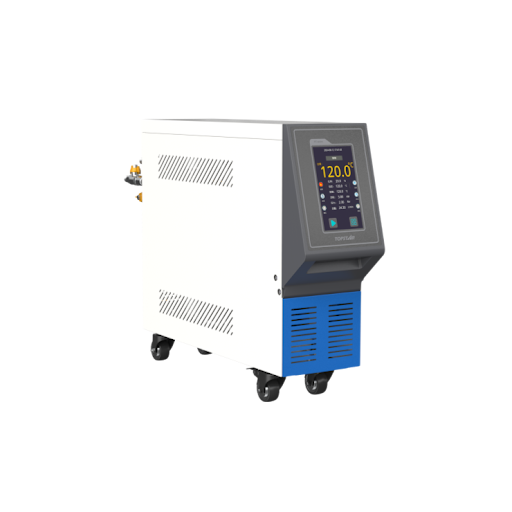In injection molding production, downtime can cost manufacturers thousands of dollars per hour, impacting production schedules, quality, and profitability. Recent industry data shows that over 60% of unplanned downtime at US injection molding plants stems from issues related to mold temperature controllers, including pump failure, scaling, leaks, and temperature instability. Traditional maintenance methods often fail to detect problems before they escalate. Predictive alerts, powered by real-time monitoring and intelligent analytics, are transforming the way manufacturers manage their mold temperature controllers. By providing early warning of anomalies, these systems help operators address potential failures before they occur, thereby reducing downtime, improving product quality, and optimizing energy use.
Predictive Alerts in Mold Temperature Controller
Mould temperature controller rely on a closed-loop system of heating or cooling fluids to maintain precise mold temperatures. Predictive alerts integrate sensors, data analytics, and connectivity to continuously monitor key performance indicators such as flow rate, temperature deviation, pressure, and pump operation. When these indicators deviate from normal operating parameters, the system issues an alert, allowing maintenance teams to proactively intervene. Unlike reactive maintenance, which only responds after a failure occurs, predictive alerts anticipate problems, minimizing downtime and production losses. Studies have shown that plants using predictive monitoring for mold temperature controllers report up to 30% reductions in unplanned downtime, demonstrating the tangible benefits of early detection.
Key Parameters Monitored by Predictive Mold temperature controller
To effectively reduce downtime, predictive alarm systems monitor several key parameters in mold temperature controllers. Flow sensors detect blockages or pump failures, while temperature sensors ensure continuous heat transfer. Pressure readings reveal potential leaks or scaling issues, and electrical sensors track motor performance to predict failures. Furthermore, real-time recording of water quality helps prevent corrosion and scaling that can affect system efficiency. By integrating multiple sensor types, predictive systems provide a comprehensive view of the health of mold temperature controllers, enabling maintenance teams to take action before minor anomalies escalate into major downtime.
Reducing Energy Waste with Predictive Alerts
Energy efficiency is another key benefit of predictive monitoring for the mold temperature controller. Faulty components or fluid flow issues can reduce heat transfer efficiency, forcing the system to consume more energy to maintain mold temperature. Predictive alarms help identify these inefficiencies early, allowing operators to correct issues such as clogged filters, low fluid levels, or degraded pump performance. By proactively addressing issues, plants can maintain optimal thermal performance, reduce energy consumption, and lower operating costs. US manufacturers have reported energy savings of up to 15% after implementing predictive monitoring on mold temperature controllers.
- Reduce downtime with predictive alerts for the mold temperature controller
- Plastic Injection Molding Machine Case Study: High-Volume Production at Scale
- A Complete Buying Guide for Solar Street Lights: Specifications, Costs, and ROI
- How can I design candle tins to minimize wax shrinkage and sinking?
- EducationBeingCom:Your Ultimate Guide to Learning & Growth
Integrating Predictive Alerts into Maintenance Protocols
Implementing predictive alerts in mold temperature controllers requires integrating the system into existing maintenance protocols. Predictive maintenance plans are based on real-time data rather than fixed intervals, enabling technicians to prioritize interventions based on actual system health. Alerts can be configured for critical thresholds and notify operators via a software dashboard, email, or mobile app. Furthermore, this integration can reduce unnecessary maintenance, prevent over-maintenance, and ensure that resources are allocated efficiently. For high-volume production facilities, predictive alert integration can significantly reduce maintenance labor and unplanned downtime, thereby optimizing the return on investment for mold temperature controllers.
Reducing Downtime in High-Volume Production
A large US plastics manufacturer recently deployed a predictive alert system on 50 mold temperature controllers on its automotive parts production lines. By monitoring flow rates, temperature deviations, and pump performance in real time, the plant detected early signs of fouling and motor strain. The maintenance team intervened before a failure occurred, avoiding a 12-hour downtime that could have cost over $100,000 in lost production. Within six months, the predictive alert system reduced unplanned downtime by 28% and energy consumption by 12%.
Choosing the Right Predictive Alert System for Mold Temperature Controllers
Selecting a predictive alert system for mold temperature controllers requires evaluating sensor accuracy, data integration capabilities, and compatibility with existing equipment. High-resolution sensors accurately measure flow, temperature, and pressure, while cloud-enabled software platforms provide analytics and trending capabilities. Integration with existing SCADA or MES systems enables operators to visualize alerts alongside production data, enhancing decision-making. Furthermore, the system should provide alerts tailored to the specific operating parameters of the mold temperature controller. By choosing a powerful predictive monitoring solution, manufacturers can optimize maintenance schedules, reduce downtime, and improve overall production efficiency.
Improve Reliability and Productivity with Predictive Alerts
Predictive alerts represent a paradigm shift in how manufacturers manage mold temperature controllers. By continuously monitoring critical parameters and providing early warning of potential problems, these systems can reduce unplanned downtime, optimize energy usage, and extend equipment life. US manufacturers using predictive monitoring report significant gains in productivity, cos.
